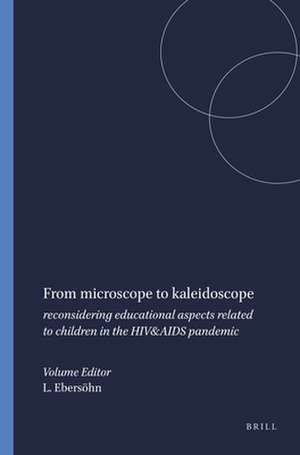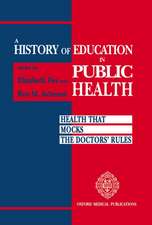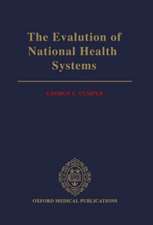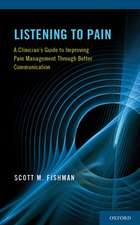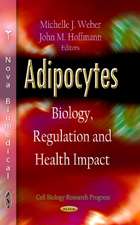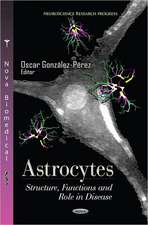From microscope to kaleidoscope: reconsidering educational aspects related to children in the HIV&AIDS pandemic
Liesel Ebersöhnen Limba Engleză Paperback – 31 dec 2007
Preț: 397.10 lei
Nou
Puncte Express: 596
Preț estimativ în valută:
75.99€ • 81.25$ • 63.35£
75.99€ • 81.25$ • 63.35£
Carte tipărită la comandă
Livrare economică 14-21 aprilie
Preluare comenzi: 021 569.72.76
Specificații
ISBN-13: 9789087905620
ISBN-10: 9087905629
Pagini: 220
Dimensiuni: 155 x 235 x 12 mm
Greutate: 0.32 kg
Editura: Brill
Colecția Brill
Locul publicării:Netherlands
ISBN-10: 9087905629
Pagini: 220
Dimensiuni: 155 x 235 x 12 mm
Greutate: 0.32 kg
Editura: Brill
Colecția Brill
Locul publicării:Netherlands
Recenzii
"“This is a splendid, sensitively written manuscript indicating reflective and dialogical thinking moving in the direction of a dialectical perspective… An important contribution is that the author(s) argue that resilience may be collective in itself, and that this idea remained under-explored.” —Marie Wissing, North-West University
“Ebersöhn provides the overarching framework for all of the contributors by arguing for the importance of both a bottom-up, crisis management perspective and a top-down, integrative psychosocial perspective. And all of the research contributors reflect in one way or the other on the significance of using existing social institutions—especially schools—to deliver interventions to children that will provide social support, bolster coping skills, and therefore boost resilience. The traditional medical model neglects these aspects of human development, a deficiency made all that much clearer in the context of the pandemic.” —From the Foreword by Peter Salovey, PhD, Yale University
“Ebersöhn provides the overarching framework for all of the contributors by arguing for the importance of both a bottom-up, crisis management perspective and a top-down, integrative psychosocial perspective. And all of the research contributors reflect in one way or the other on the significance of using existing social institutions—especially schools—to deliver interventions to children that will provide social support, bolster coping skills, and therefore boost resilience. The traditional medical model neglects these aspects of human development, a deficiency made all that much clearer in the context of the pandemic.” —From the Foreword by Peter Salovey, PhD, Yale University
